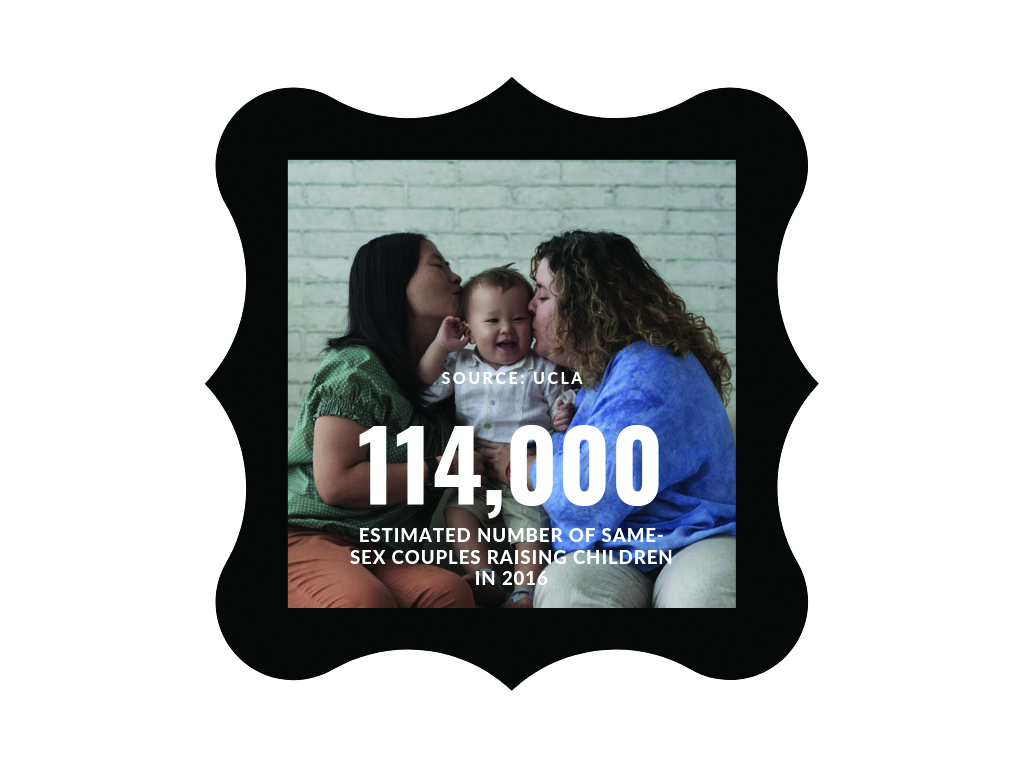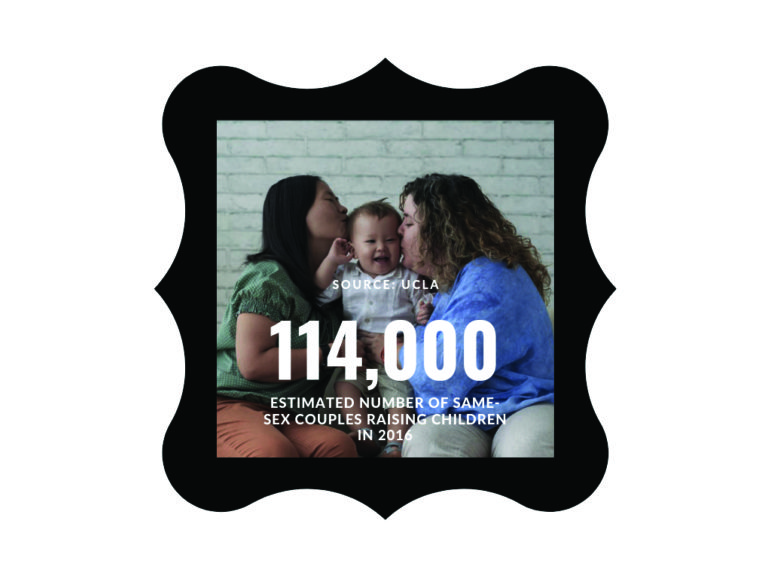
What makes a family? Someone fifty years ago may have said a doting wife cooking for her children as her husband comes home from a long day of work. Twenty years ago, it might have been a husband in a polo shirt barbecuing outside while the wife reads a book and watches the children. Now, families come in countless different forms, as the term “family” has evolved to be as diverse as America itself has grown to be.
More and more children are being raised in households that go beyond the male-female parent construct, breaking the mold of the traditional family and proving that good parents are not defined by their genders, but by the love they have for their children.
Paris Quinney, a junior at San Mateo High School has two moms.
“When other parents dropped their kid off at kindergarten, [I realized] there was always a male and a female, like a mom and dad,” said Quinney. “I was like, ‘What’s going on here?’ [But having two moms] was just so normalized for me. It wasn’t a big deal.”

Despite an estimated 10 million people living with one or more LGBT parents today, the traditional picture of a family with a mother and father still pervades American society.
Parker Hurwitz, a junior at Woodside Priory, finds that people are often surprised when they meet her two mothers.
“[Everyone] expect[s] me to have two Asian parents, but I have two white moms,” Hurwitz said. “They’ve just kind of always assumed that people have a mom and dad. I always have to correct them, but they’re always really nice about it.”
In the Bay Area, both the children of LGBT parents and the parents themselves find more acceptance than prejudice in a time of increasing activism and progressivism.
“It’s definitely pretty different [here compared to] other parts of the country,” Hurwitz said. “I’ve never really experienced [prejudice] because I’ve lived in this little bubble.”
However, prejudice still penetrates American society, even in the more liberal and open-minded Bay Area.
“Going into middle school, when everyone just got a lot meaner … some people had things to say,” said Quinney. “But I never really let it get to me just because … so many people … instead of being more prejudiced have said such nice comments, like ‘You’re so lucky to have two moms!’ … It never occurred to me that homophobia was such a popular thing.”
As a parent, raising a child is difficult enough without having to handle the pressures of discrimination or prejudice. AP U.S. History teacher Heather Sadlon discusses the challenges that come with being an LGBT parent.
“No parent can provide everything for their child so … whether I’m gay or not gay, or [my daughter] has two moms or not … we want her to have male role models in her life,” Sadlon said. “Now that she’s getting a little bit older, she feels a range of things, because … she’s a different race from us and everybody notices she has two moms … Trying to help her navigate that is tricky.”
“I was exposed to the LGBTQ+ community at such a young age, and that was normalized for me. I’m expecting that a lot of children raised in heterosexual families are … not as exposed”
Despite potential challenges of being raised with same sex parents, children learn and experience many different things that children raised by a traditional mother and father may not encounter until later in life.
“I was exposed to the LGBTQ+ community at such a young age, and that was normalized for me. I’m expecting that a lot of children raised in heterosexual families are … not as exposed,” Quinney said. “I was already raised … with that open mind … [and I think I’m] more empathetic to those that consider themselves to be different since my family is so different.”
At the end of the day, love is what makes a family. People are slowly coming to see that, and whether that love exists between a mother and father, two fathers, two mothers or another couple, families of all forms are beginning to be accepted and welcomed in the world today.
“[I wanted] people to accept this, [but I didn’t] really want to be some civil rights activist. I just wanted to live my life,” Sadlon said. “Sometimes I look at this acceptance and it’s almost mind boggling … I couldn’t imagine this moment 20 years ago. It didn’t seem like it would exist, ever.”




